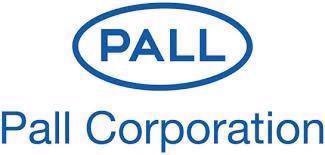With cannabis now legal in many US states, the market is poised for accelerated expansion. Experts have predicted that the market will grow at a rate of 31.9% from 2020 to 2024, according to DBMR, with the combined market value reaching USD $45 billion by 2024.

As cannabis oils make up a significant part of the market, processors must keep up with demand while also trying to keep costs down. One way processors could save money is by reducing operational expenses. For instance, in the extraction process, specifically during post winterization, there are a number of common challenges that can increase operating costs, these include:
- Numerous passes through equipment to remove waxes or lipids
- Numerous passes through equipment to remove color
- Product loss through processing or inefficient processes resulting in breaking beakers or spillage
- The laborious, long time to process out lipids or waxes, more than eight hours per batch
Some cannabis companies who have some of these issues leverage filtration solutions to improve their process. This in turn, allows them to run their business at lower operating costs.
When considering the extraction process for cannabis oils, there are three ways that filtration can help save money:
1. The time saved by using filtration extraction creates more available production hours, increasing throughput and resulting revenue.
For example, CBD distillate is $ 1260 per kilogram or liter according to kush.com. If small batches of CBD are being processed, totaling around 200 liters per week and production can be increased by 50% a week as a filtration process has been implemented or refined, it is an extra 100 liters generated each week.
That works out at USD $126,000 a week in terms of revenue, or over USD $6.5 million a year.
2. The risk of recalls or facility closures can be reduced by the safety of leveraging Good Manufacturing Practice (GMP) compliant products.
For example, if a business was just audited and it was found that it was not GMP compliant and that facility produces 1000 liters of CBD distillate a day then that is USD $25 million dollars lost in potential revenue over the course of a month if the facility is closed for certification.
If the facility operates for five days a week, then that number does not even account for product recalls, fines, or damage to a company’s reputation.
3. Reduction of human error and product loss that occurs when leveraging filter presses or lab-scale products.
For example, a business could be losing one liter a day for five days a week over 52 weeks due to product loss (from ineffective filter presses). A process enhancement like leveraging an enclosed system with depth filtration modules could potentially save the business a single liter, which equates to USD $325,000 a year.
Of course, total savings can differ as they are dependent on a variety of factors that may impact your process, but the additional peace of mind that comes from reducing the potential for operator error is priceless.
Cannabis companies want to grow profit as consumer demand continues to grow. One of the best ways to do that is to look for solutions that can increase overall production while also reducing costs, and depth filtration with lenticular modules has the potential to help do both.

This information has been sourced, reviewed and adapted from materials provided by Pall Corporation.
For more information on this source, please visit Pall Corporation.